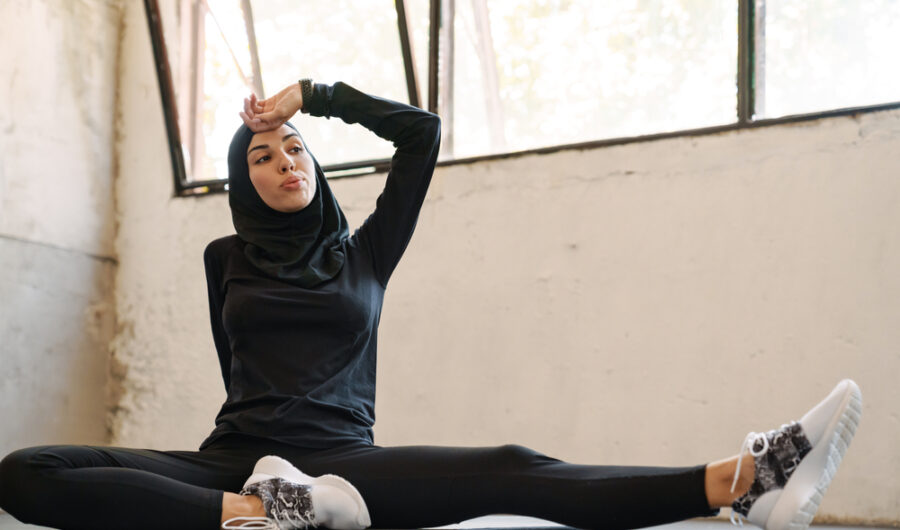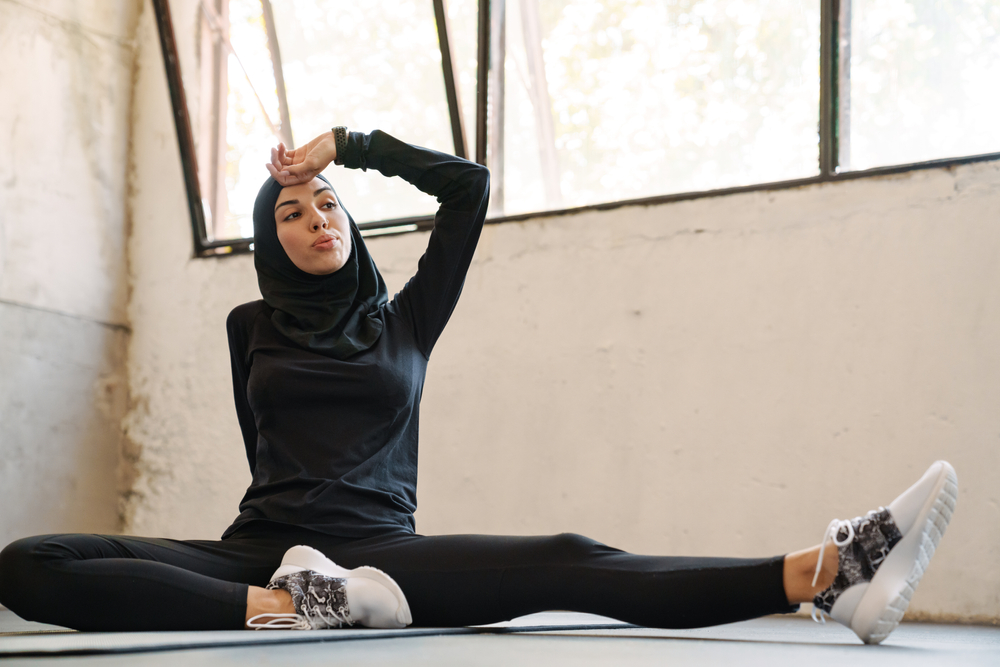With Ramadan underway, Muslims worldwide are on a journey of fasting, prayer, reflection, and community. This sacred month holds profound spiritual significance, offering an opportunity for spiritual growth and connection with one’s faith. However, alongside the spiritual rewards, Ramadan presents unique challenges to maintaining health and fitness routines.
Balancing the spiritual obligations of fasting with nourishing the body and staying active can indeed be a delicate task. The fasting period, from dawn until sunset, requires abstaining from food and drink, which can impact energy levels, hydration, and overall wellbeing. Additionally, adjusting meal times and sleep schedules to accommodate Ramadan’s observances may disrupt established health and fitness routines.
Nevertheless, with careful planning and mindfulness, it’s entirely possible to prioritize health and fitness during Ramadan. By integrating self-care practices into the daily routine, individuals can ensure their physical, mental, and spiritual wellbeing remains supported throughout the month.
Here are 12 tips to assist individuals participating in Ramadan in maintaining their wellbeing:
Balanced Suhoor and Iftar: Commence and conclude the fasting day with balanced meals during Suhoor (pre-dawn meal) and Iftar (meal to break the fast). Incorporate a variety of nutrient-rich foods to help balance your macronutrients, including complex carbohydrates, lean proteins, healthy fats, and fibre, to sustain energy levels and promote satiety.
Hydration: Prioritise hydration between Iftar and Suhoor by consuming ample water and hydrating beverages to replenish fluids lost during fasting. Coconut water, herbal teas, and hydrating foods such as fruits and vegetables can contribute to maintaining hydration levels throughout the day.
Prioritise Sleep: Ensure adequate sleep by maintaining a consistent sleep schedule and prioritising rest during Ramadan. Aim for seven to eight hours of quality sleep each night to support physical and mental health, and establish a relaxing bedtime routine to promote restful sleep.
Listen to Your Body: Pay attention to your body’s signals throughout the day, particularly during fasting hours. If experiencing symptoms of fatigue, dizziness, or weakness, it may indicate a need for rest or hydration. Honour your body’s needs and adjust your activities accordingly.
Choose the Right Time for Workouts: Schedule your workouts during times when energy levels are likely to be highest, such as after breaking the fast (Iftar) or before the pre-dawn meal (Suhoor). These times are optimal for physical activity as they allow for replenishing energy stores and hydration.
Focus on Low-Intensity Exercise: Opt for low-intensity exercises that are gentle on the body and do not require excessive exertion. Walking, cycling, swimming, and gentle yoga are excellent options for maintaining fitness without overtaxing the body during fasting hours.
Shorten Workout Duration: Consider shortening the duration of your workouts during Ramadan to accommodate for reduced energy levels. Aim for brief, focused sessions that target specific muscle groups or fitness goals, rather than lengthy or intense workouts.
Prioritise Recovery: Place emphasis on post-workout recovery to support muscle recovery and prevent fatigue. Incorporate activities such as stretching, foam rolling, or gentle massage to alleviate muscle soreness and promote relaxation.
Modify Exercise Intensity: Adjust the intensity of your workouts based on how you feel each day. Listen to your body’s signals and be willing to scale back or modify exercises as needed to prevent overexertion and avoid injury.
Hydrate Before and After Exercise: Prioritise hydration by drinking plenty of water before and after exercise to replenish fluid lost during physical activity. Consider consuming electrolyte-rich beverages or coconut water to restore electrolyte balance and prevent dehydration.
Break Exercise into Segments: If completing a full workout feels challenging, break it into shorter, manageable segments throughout the day. For example, engage in ten minutes of activity multiple times a day, such as brisk walking or bodyweight exercises, to accumulate physical activity over time.
By following these tips, individuals can continue to embrace movement and stay active during Ramadan while respecting their body’s needs and limitations. Maintaining a balanced approach to exercise during fasting hours ensures that physical activity complements the spiritual journey of Ramadan without compromising overall health and well-being.














